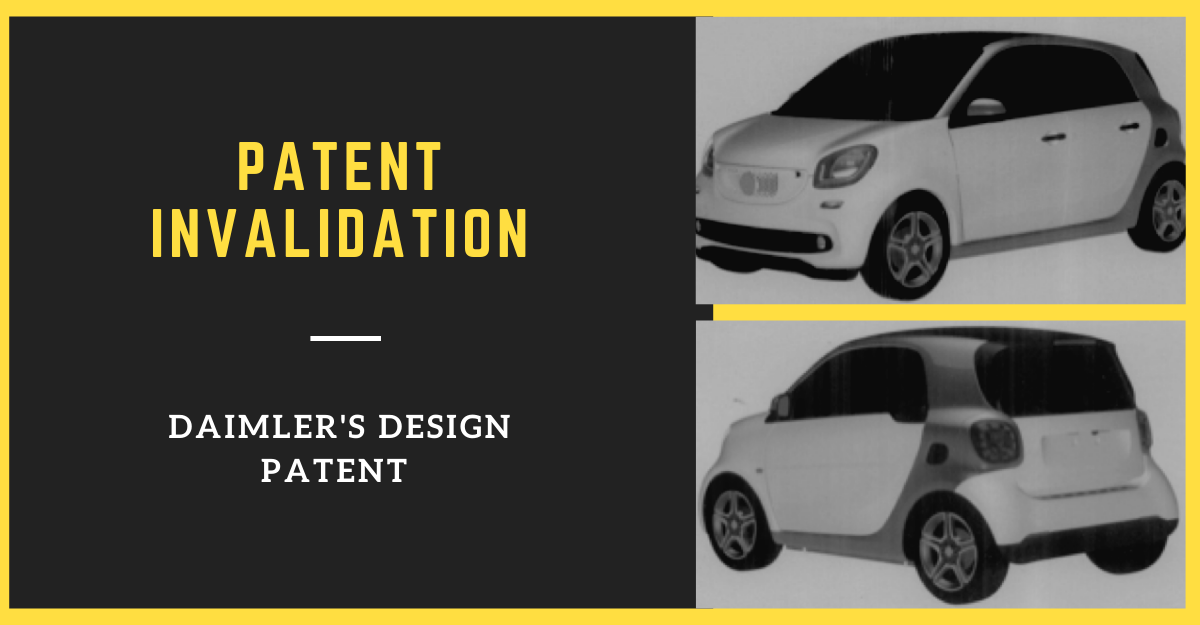Patent invalidation is the process of invalidating the claims of a granted patent by determining its validity. The validity is determined by searching for any disclosure about the patent which is accessible to the public before the filing date or priority date of the patent (whichever is earlier). Generally, persons/companies being sued for patent infringement seek patent invalidation. For this, they perform a patent invalidation search in order to prove that the opponent’s patent is obvious or not novel. In other instances, a patent invalidation search may be conducted before seeking a license for a particular patent, or for assessing the value of the patent portfolio during mergers and acquisitions.
In most countries, an administrative forum outside of the court is constituted. This forum is a panel of experienced examiners who will review the validity of the patent. The reviewing of the patent is done on the grounds of non-compliance with patentability criteria. Although there are various grounds for invalidating a patent, the usual arguments made are that the patent to be invalidated was not novel or was obvious. The patent invalidation mechanism provides for an inter partes approach. In most countries, it is not limited to a specific period after the grant of the patent. This patent invalidation procedure gives a longer window of time to challenge the validity of a patent.
The Chinese patent invalidation regime
China, in recent times, has invalidated the patents of automobile corporations on the basis that the claims made in the patent were already known to the public. The China National Intellectual Property Administration (CNIPA) has the exclusive jurisdiction of determining the validity of patents. The petitioner can file for invalidation of a patent on any of the following grounds – non-patentable subject matter; double patenting; unpatentability (i.e., an invention or utility model patent that does not possess novelty, inventiveness, or practical applicability, and a design patent that is identical or similar to another design, or is in conflict with any prior legitimate right of any other person); insufficient disclosure of the description; a claim lacking support from the description; a claim lacking clarity; a claim lacking essential technical features; new matter added beyond the original scope of disclosure; and lack of a confidentiality examination (i.e., an invention or utility model developed within China’s territory that has been filed abroad without a request for a confidentiality examination in advance).
The invalidation procedure can be instituted by filing an invalidation request against an invention, utility model, or design patent. This is a preliminary request and must refer to at least some of the grounds of invalidation mentioned above. Other grounds can be filed within a period of one month.
A recent case illustrates the Chinese patent invalidation procedure with respect to a design patent i.e., Daimler’s design patent relating to its Smart design. Daimler AG, commonly known as Mercedes, is a multinational automotive company based in Germany. Shandong Lichi, a Chinese company, dealing with new energy vehicles, challenged the validity of Daimler’s Design Patent 2014300323066 before the CNIPA. This design patent is regarding the new Mercedes-Benz Smart generation.
Figures of the design patent
On March 18th, 2020, the CNIPA invalidated this patent by holding that the two designs in the patent to be invalidated i.e., 2015 Smart Fortwo and 2016 Smart Forfour did not have any obvious differences from previous designs which were published in news media. The contention here is that since these highly similar prior designs were published in news media, they were accessible to the public. In 2012, Tencent, a popular media outlet, reported that Daimler was developing a new Smart model and was going to launch the third generation in 2014, along with the profiles of Smart Fortwo and Smart Forfour. This 2012 report by Tencent was before the priority date of the design patent at issue i.e., August 21st, 2013. However, Daimler did not file the relevant patent applications in China, claiming its priority until 2014.
Daimler is not the only automobile company whose design patents have been invalidated by the CNIPA due to advanced publicity. Landrover Evoque’s design patents were invalidated by the CNIPA in 2016 as the Land over had unveiled Evoque at an automobile exhibition before filing for the design patent.




